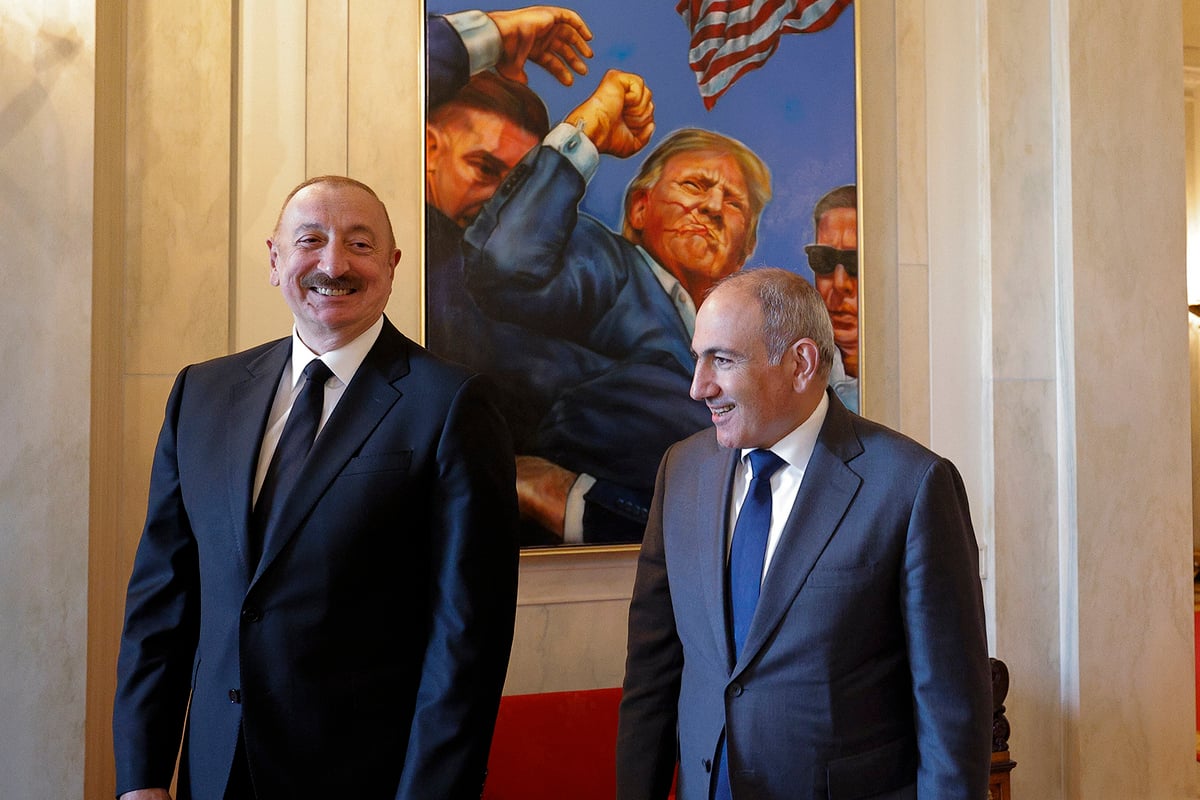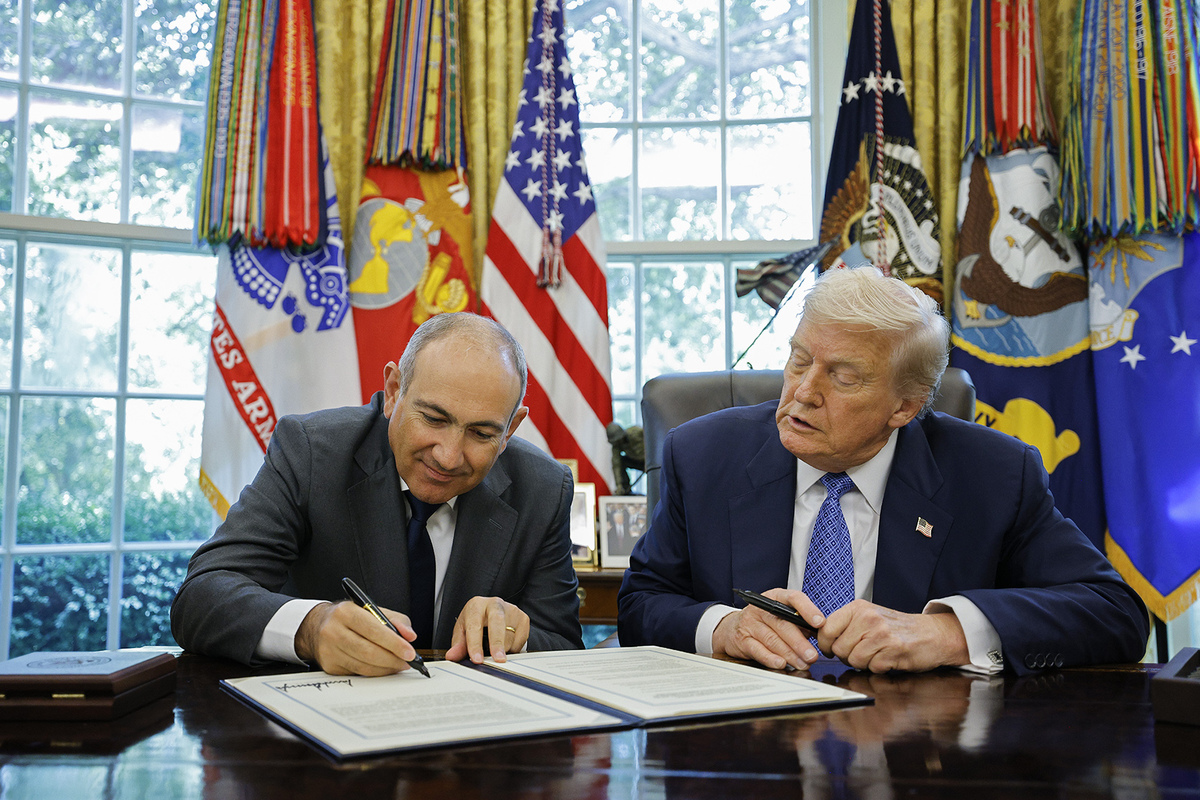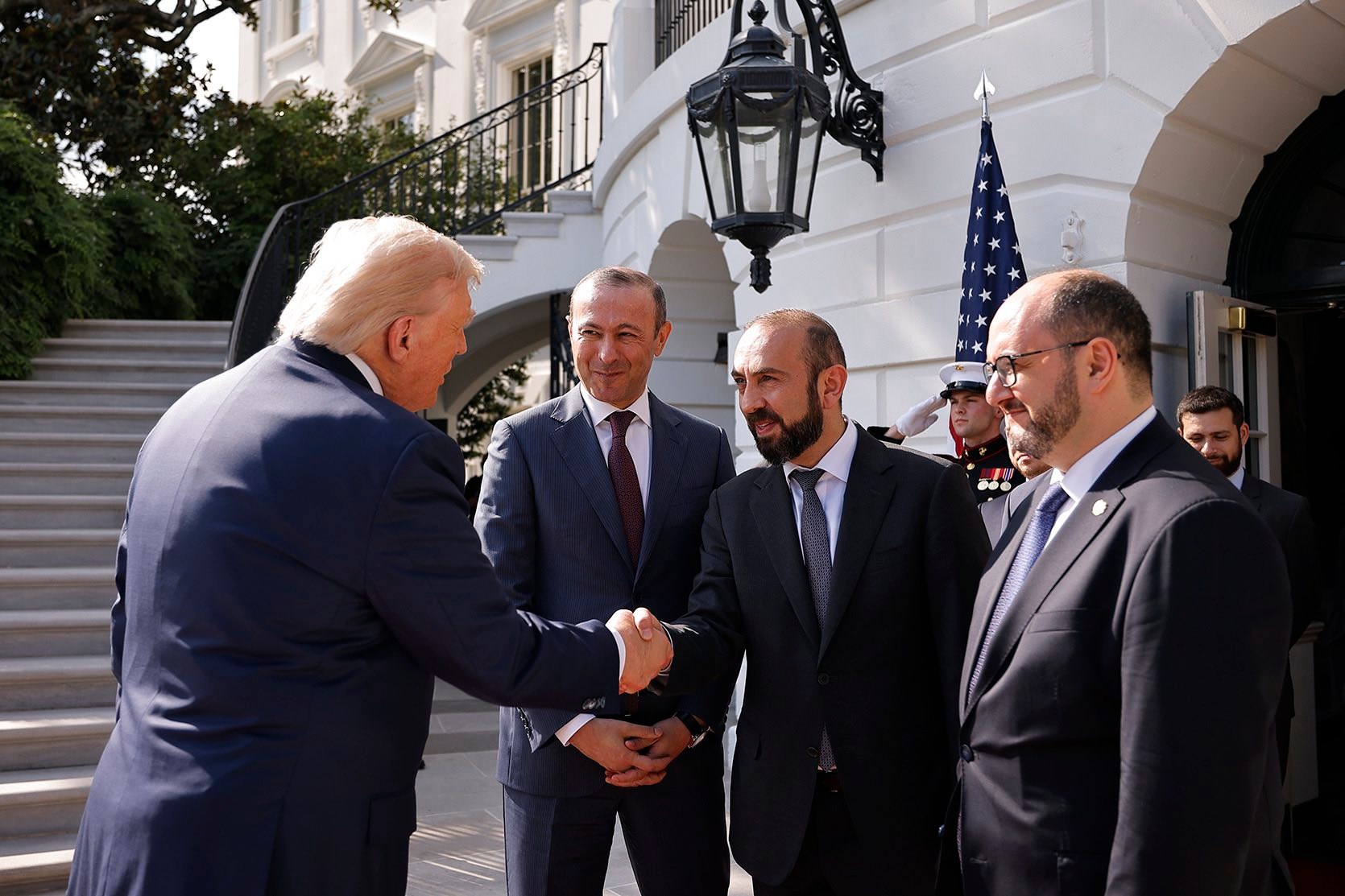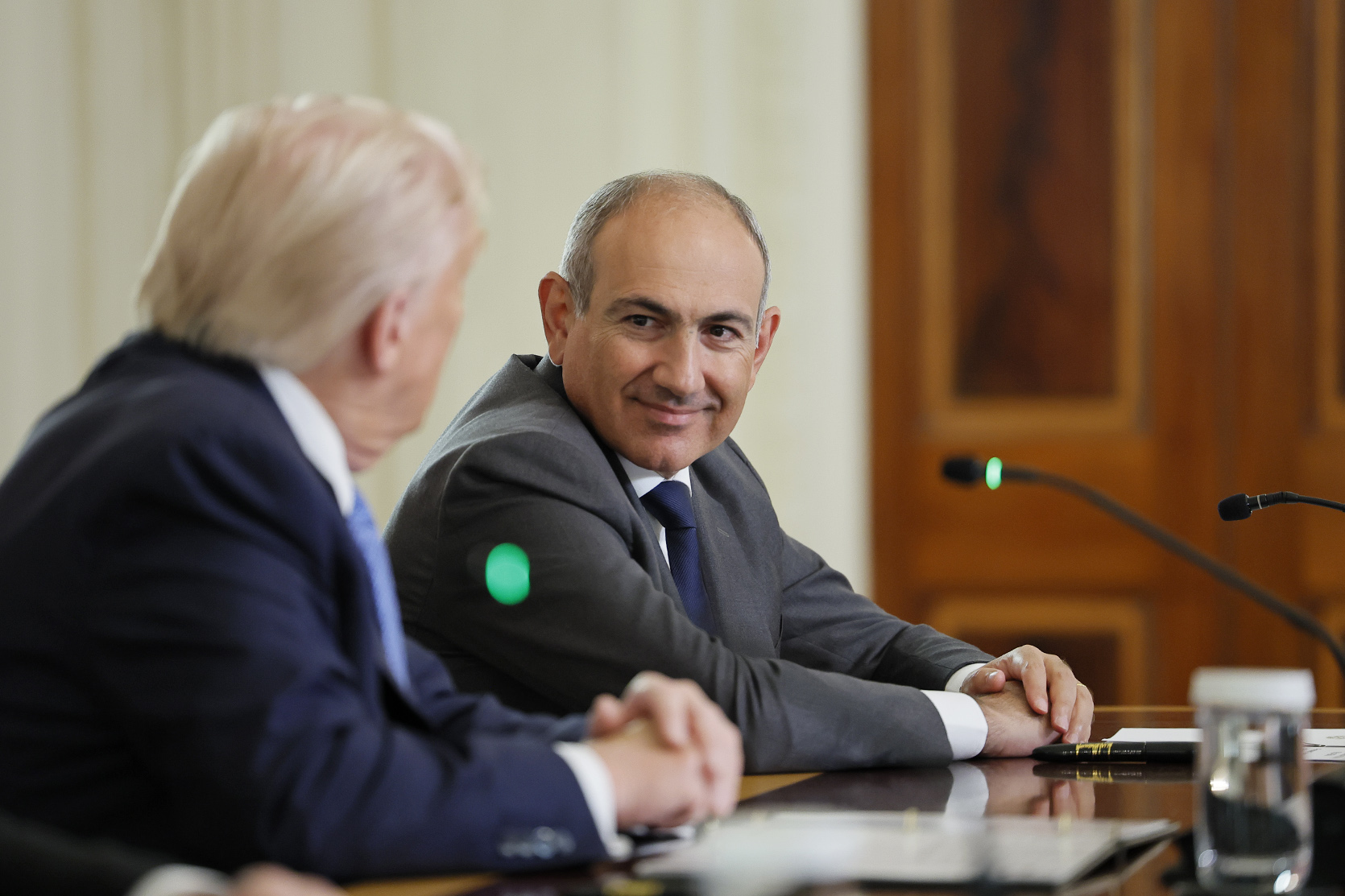“Baku not only gained dividends in Washington but also made concessions to Yerevan” – Opinion
Washington meeting results
Some Azerbaijani media outlets have tried to portray the results of the Washington meeting between Trump, Pashinyan and Aliyev as a complete victory for Baku. Meanwhile, Armenian analysts argue that Azerbaijan not only gained benefits but also made concessions.
Political scientist Narek Minasyan sees Baku’s renunciation of the use of force or threats against Armenia as a retreat from its earlier stance. He also points to the abandonment of demands for an extraterritorial corridor through Armenian territory — the so-called “Zangezur corridor.”
According to him, the documents signed in Washington allow Azerbaijan to present itself as “a constructive player committed to a peace agenda.” Whether that proves to be true, he noted, will become clear once the agreements start being implemented.
“The agreements reached in Washington represent a serious opportunity to build a stable, peaceful and prosperous region. Their implementation, however, depends on how sincere Azerbaijan’s leadership is in its commitment to peace, and how consistent the United States proves to be,” Minasyan said.
- OSCE Minsk Group disbanded: Armenia debates whether it is “progress or a loss”
- “Armenia is now in its least vulnerable position” – key points from Pashinyan’s briefing
- “Trump Route” will create conditions for new investment in Armenia – economist
- “Trump Route” will create conditions for new investment in Armenia – economist
On 8 August in Washington, Armenia and Azerbaijan initialled a peace agreement. With US mediation, the two sides also reached an understanding on reopening transport links. Disagreements over this issue had been so deep that in August 2024 it was removed from the draft peace treaty, in the hope that this step would make it possible to sign the document in the near future.
The reopened road has been named the “Trump Route for International Peace and Prosperity” — TRIPP. The details of how the project will be implemented are still unclear. What is known is that an Armenian-American company will be set up to “manage the business.” Yerevan insists that Armenian authorities will carry out customs and border control, and it is explicitly stated that the land used for the road will remain under Armenia’s ownership.
In addition, Yerevan and Baku signed several bilateral documents with the US. Armenia and the US, in particular, signed three memorandums of understanding covering: 1) cooperation in artificial intelligence and semiconductors, 2) energy security, and 3) support for the “Crossroads of Peace” project.
Comment
Political analyst Narek Minasyan sees the Washington agreements as a package deal crafted by the Americans to secure two things:
- a “win-win” outcome on the path to peace,
- and extra “carrots” for Yerevan and Baku in their bilateral ties with the US, designed to encourage compromise.
“For both Azerbaijan and Armenia, rejecting the US administration’s offer would have been risky — not only in terms of losing potential ‘carrots,’ but also in terms of possible unwanted pressure, given Trump’s unpredictability,” Minasyan stressed.
Among those incentives, he lists the US-Azerbaijan bilateral agreements — a reset in relations — and the suspension of Section 907.
Since 1992, Section 907 has barred the US government from providing direct aid to Azerbaijan, including military assistance. From 2002 onwards, every US president signed annual waivers suspending its effect. The only year it remained in force was 2024. On 8 August 2025, Trump once again signed a decree temporarily suspending Section 907.
“Azerbaijan expects that lifting the restrictions will create new opportunities to deepen cooperation with the US in the economic, technological, energy and military spheres. This will also boost the country’s investment appeal,” Minasyan said.
Another tangible result of the talks, he noted, was the agreement to set up a working group to draft a charter on strategic partnership between Azerbaijan and the US.
“On the one hand, this will take bilateral relations to a qualitatively new level, opening fresh avenues for cooperation. On the other hand, it will correct the imbalance between US-Armenia and US-Azerbaijan relations.”
In January 2025, Yerevan and Washington had already signed their own strategic partnership charter.
According to Minasyan, under the memorandum signed with Azerbaijan, partnership will cover three areas:
- regional communications (including energy, trade and transit),
- investment (including artificial intelligence and digital infrastructure),
- security (including the sale of defensive equipment and counterterrorism).
Minasyan added that the charter is expected to be ready for signing within a few months.
The political analyst is convinced that Baku also gained political dividends — with the Azerbaijani president’s reception at the White House.
“For Ilham Aliyev, a meeting at Trump’s level was, above all, about satisfying personal ambitions. It was another chance to reinforce his authority at home and in international affairs. The reception also carried symbolic weight, since for the new US administration the ethnic cleansing of Armenians in Nagorno-Karabakh and widespread human rights abuses in Azerbaijan have effectively been pushed into the background. The agenda has shifted to shared interests,” Narek Minasyan explained.
At the same time, the analyst points to concessions Baku made following the White House meetings:
“Azerbaijan gave up the lever it had used against Armenia for years — the threat and use of force.”
He suggests that making political commitments to peace in the presence of US president Donald Trump reduces the likelihood, at least in the short term, of border escalations and provocations by Azerbaijan. Still, Minasyan does not rule out changes in the longer run:
“There are no signs yet that Baku is moving away from militarisation or from the state-level promotion of Armenophobia.”
In any case, he argues, the Washington agreements give Armenia time to strengthen its defence capabilities. In a more positive scenario, they could even lay the groundwork for genuine peace in the region.
He also sees Azerbaijan’s abandonment of demands for an extraterritorial corridor as a retreat from previous positions. The principles enshrined in the trilateral declaration, he says, rule out the existence of such a corridor.
At the same time, he notes that Azerbaijani propaganda continues to use the term “Zangezur corridor”:
“For Armenia, the way to finally neutralise risks in this area is to set clear terms for implementing the ‘Trump Route’ together with the American side.”
According to Minasyan, the forthcoming Armenia-US document must clearly define all key terms. For example, what Baku often calls “unhindered communication.” He also considers it necessary to adopt additional legal and technical provisions to prevent “manipulation by the Azerbaijani side.”
Washington meeting results






















